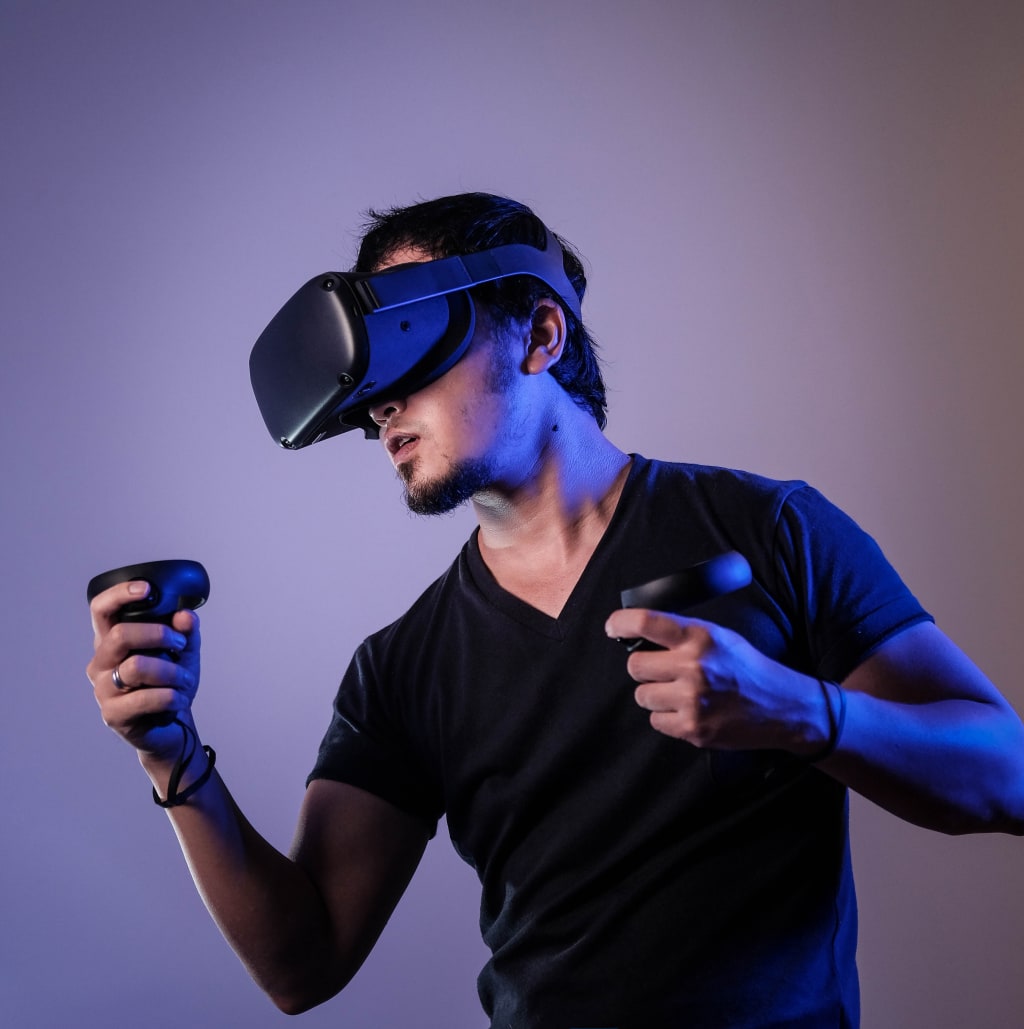
Virtual Reality (VR) has emerged as an immersive technology that offers unique experiences and has the potential to revolutionize various industries. With its ability to create simulated environments and interactive experiences, VR has gained significant attention in fields such as gaming, education, healthcare, and entertainment. This essay aims to explore the potential applications and implications of virtual reality technology in these domains.
Virtual reality has transformed the gaming industry by providing players with immersive and interactive experiences. VR games offer a level of immersion and realism that traditional gaming cannot replicate, allowing players to feel as if they are truly present in the game environment. This enhances gameplay, increasing engagement and enjoyment.
VR enables social interaction in gaming through multiplayer experiences. Players can connect with friends or strangers in virtual worlds, collaborating or competing in shared environments. This fosters a sense of community and connectivity, transcending geographical barriers.
Virtual reality has the potential to revolutionize education by offering immersive and experiential learning opportunities. Students can explore historical events, visit distant places, or interact with complex concepts in a simulated environment. This hands-on approach enhances engagement, understanding, and retention of knowledge.
VR enables realistic simulations for training purposes. Industries such as aviation, medicine, and military use VR to simulate high-risk scenarios, allowing professionals to practice skills and decision-making in a safe environment. This enhances training effectiveness, reduces costs, and minimizes potential risks.
Virtual reality has shown promise in pain management and therapeutic interventions. VR experiences can distract patients from pain during medical procedures or provide immersive environments for relaxation and stress reduction. Additionally, VR-based therapies are being explored for conditions such as anxiety disorders, phobias, and post-traumatic stress disorder (PTSD).
VR is increasingly used in physical rehabilitation to enhance motor skills and functional recovery. By creating interactive and engaging experiences, VR can motivate patients to perform repetitive exercises and monitor progress. This technology holds potential in areas such as stroke rehabilitation and improving mobility for individuals with disabilities.
Virtual reality presents a new frontier for entertainment, offering immersive cinematic experiences. VR films and documentaries allow viewers to feel as if they are part of the story, creating a more engaging and memorable experience. This technology opens up new possibilities for storytelling and narrative exploration.
VR has the potential to transform how we experience live events and performances. Through VR technology, individuals can attend concerts, sports events, or theatre performances from the comfort of their homes, providing an immersive and accessible alternative to physical attendance.
As virtual reality becomes more prevalent, ethical considerations arise. Issues such as privacy, data security, and psychological effects of prolonged VR use need to be addressed. Guidelines and regulations must be established to ensure responsible and ethical use of VR technology.
While VR offers exciting possibilities, accessibility and inclusivity should be prioritized. Considerations should be made for individuals with disabilities, ensuring that VR experiences are accessible and customizable to accommodate diverse needs.
As virtual reality becomes more immersive, striking a balance between the real and virtual worlds becomes essential. It is crucial to maintain a healthy relationship with technology, ensuring that virtual experiences complement and enhance real-life interactions rather than replacing them entirely.
The rise of virtual reality has opened up new horizons across gaming, education, healthcare, and entertainment. By providing immersive and interactive experiences, VR technology has the potential to transform industries and create novel opportunities. From enhancing gameplay and revolutionizing education to improving healthcare outcomes and redefining entertainment experiences, virtual reality is shaping the way we interact with the world. To fully realize the potential of VR, it is crucial to address ethical concerns, prioritize accessibility, and strike a balance between the virtual and real worlds. By leveraging the benefits of virtual reality technology responsibly, we can unlock a future where immersive experiences enrich our lives and redefine human possibilities.





Comments
Eva Perry is not accepting comments at the moment
Want to show your support? Send them a one-off tip.